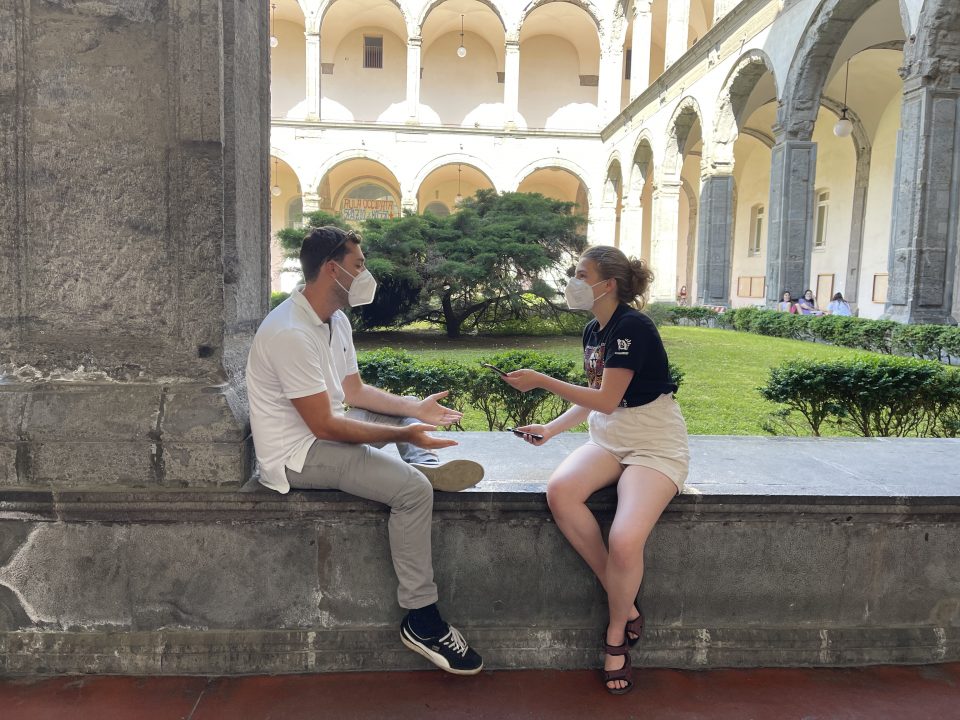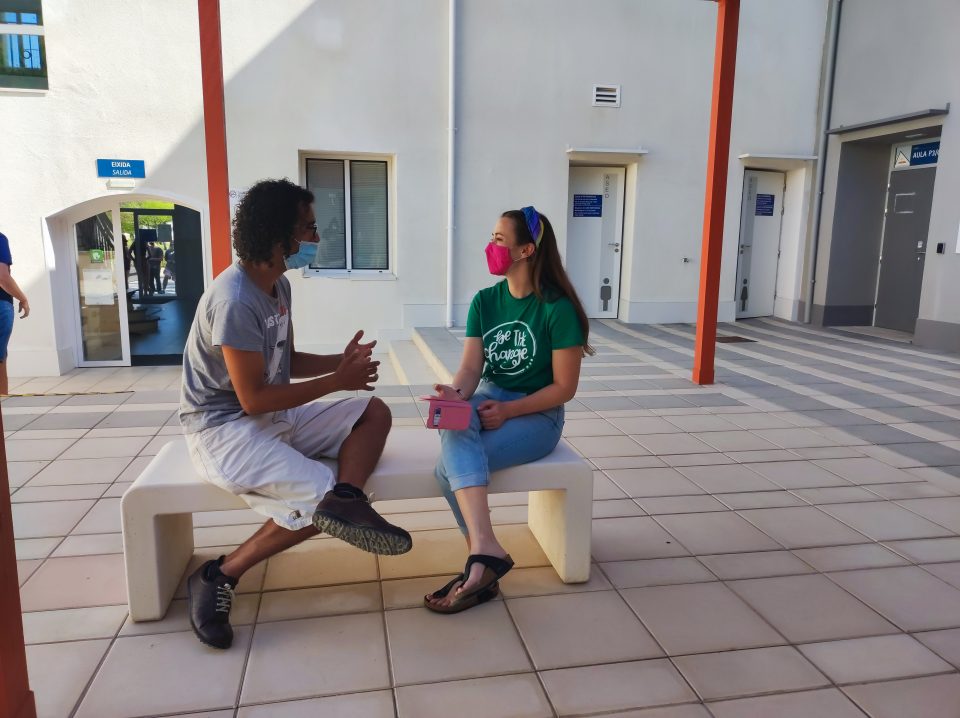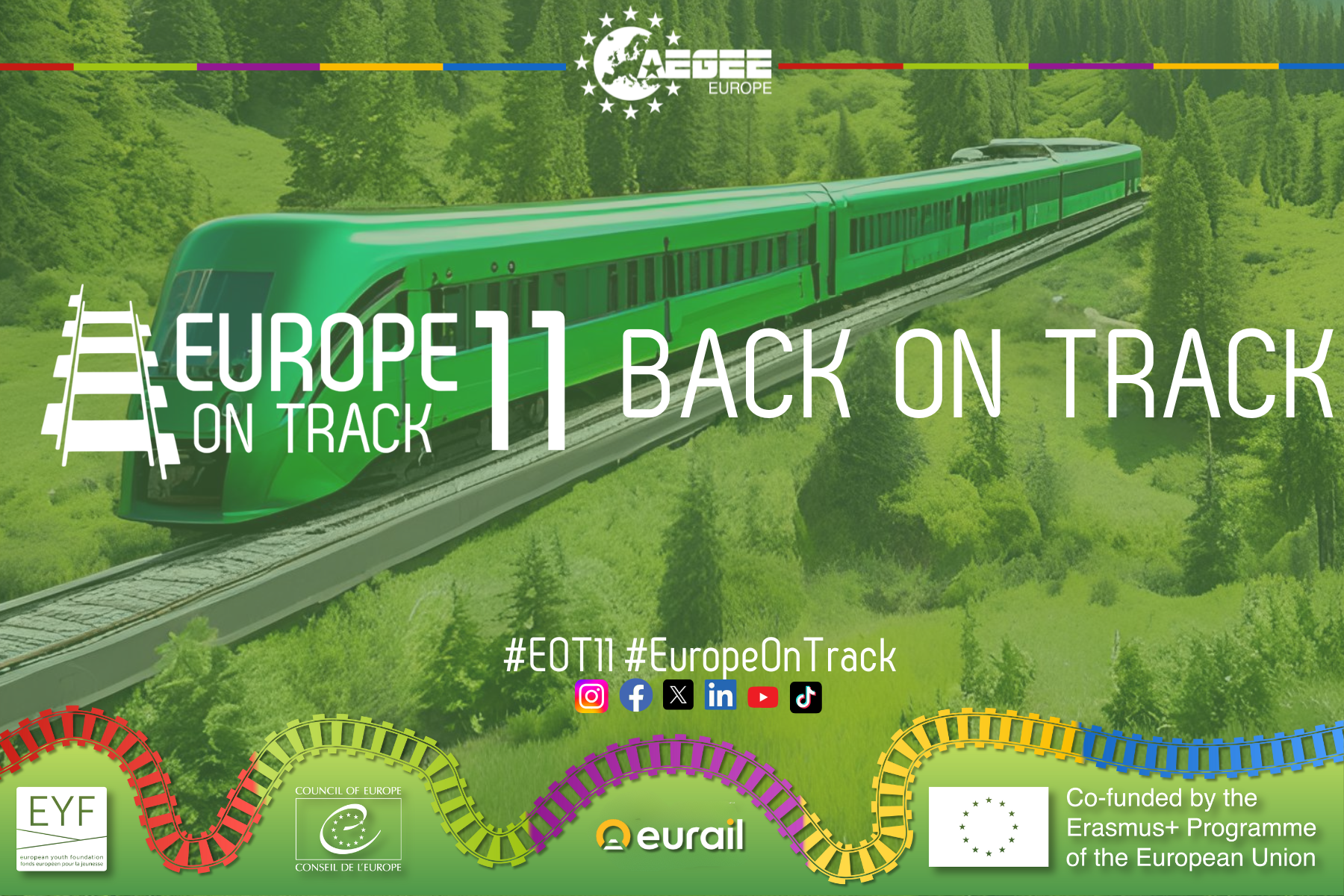
The 8th edition of Europe on Track has focused on political activism. Given the current situation we now live in, with the COVID-19 pandemic still going on, we also wanted to ask the European youth how this pandemic has impacted their activism and more generally their daily lives. During the routes the ambassadors interviewed young people all over Europe and asked them questions about the impacts of the pandemic. On this page we provide you with 5 tips for articles and reports to read as further research on how the pandemic impacted young people.
Journalists from the Guardian have also interviewed young Europeans across the continent to ask them in what way COVID-19 has changed their lives in the past two years. These interviews might be interesting to read next to our results, to get a broader view of what youth in different countries have pointed out as important to them. You can read the interviews from the Guardian here.
The main point that came forward from our interviews was how the pandemic and accompanying lockdowns have affected the mental health of young people. Since the start of the pandemic, more young people have been dealing more often with mental health issues such as depression, loneliness, severe stress and forms of anxiety. Youth are to a large extent vulnerable to the impact of sustained stressors in their environment. The pandemic has caused a disruption in their normal development and daily lives, which has in many cases affected their mental health. In the following article these challenges created by the COVID-19 pandemic are set out. However, this article (1) also leans into the opportunities that the pandemic can possibly bring young people. If you want to read the whole article, please click here.

However, the impacts of the COVID-19 pandemic go further than mental impact. Much of our daily life which normally takes place in public spaces such as offices and schools has over the past two years in many cases been brought back to staying at home. For many young people the pandemic has disrupted their lives and the way they are working on and thinking about their futures. In this report UNICEF explains some deeper embedded problems that came along with the lockdowns, such as: lower quality of education due to the lack of fast adapting to lockdowns, an increase in child abuse, domestic violence and gender-based violence and higher rates of unemployment under youth.
This last one, youth unemployment due to the pandemic, is something that did not strongly come forward in our interviews. However, this next article (2) explains how the unemployment numbers have risen significantly all over the European Union due to the strict health-measures that were in place to keep the virus from spreading. These measures prevented fast spreading of the virus, but brought with them also a decrease in economic growth. Young graduates are overall a vulnerable group in the labour market, and the COVID-19 pandemic has only weakened their position, since job opportunities only became scarcer.
Circling back to our interviews, we also noticed that people mention that the COVID-19 pandemic brought some new feeling of community. Going through this pandemic together has also brought people closer together and we have seen people join forces to mobilize and connect people in new ways. The last article highlights that the exposure to the challenges that COVID-19 brought are important for the development of resilience, it will in the long run help young people to handle stressful experiences.
Sources:
1. Courtney, D., Watson, P., Battaglia, M., Mulsant, B. H., & Szatmari, P. (2020). COVID-19 Impacts on Child and Youth Anxiety and Depression: Challenges and Opportunities. The Canadian Journal of Psychiatry, 65(10), 688–691. https://doi.org/10.1177/0706743720935646
2. Lambovska, M., Sardinha, B., & Belas, J. (2021). Impact of Covid-19 Pandemic on the Youth Unemployment in the European Union. Ekonomicko-manazerske spektrum, 15(1), 55-63.
